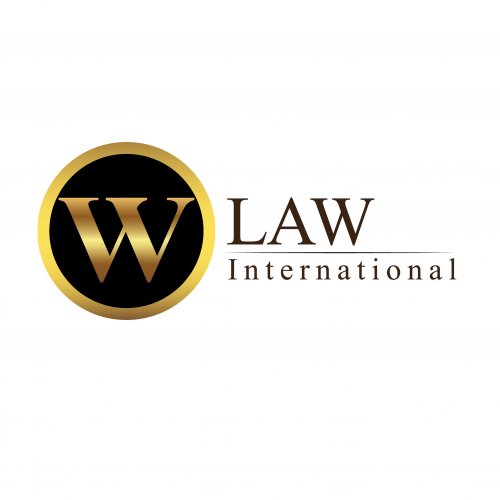Best Financial Services Regulation Lawyers in Pattaya
Share your needs with us, get contacted by law firms.
Free. Takes 2 min.
List of the best lawyers in Pattaya, Thailand
Thailand Financial Services Regulation Legal Articles
Browse our 1 legal article about Financial Services Regulation in Thailand written by expert lawyers.
- Thai Legal Framework for Cryptocurrencies
- Technology, investment, and money have all been fundamentally altered by cryptocurrencies. Countries all throughout the globe struggle to design legal regimes that safeguard consumers while fostering innovation as these digital assets develop. Thailand distinguishes itself in this sense as it has one of the most thorough regulatory frameworks regarding cryptocurrencies... Read more →
About Financial Services Regulation Law in Pattaya, Thailand
Financial Services Regulation in Pattaya, Thailand, is governed by a framework of laws designed to ensure the stability and integrity of financial systems and protect consumers. This regulatory environment covers various sectors, including banks, investment firms, insurance companies, and financial advisors. The laws are designed to oversee and guide the conduct of these financial entities to ensure they operate within legal boundaries and maintain transparency and fairness in dealings with clients. These regulations are crucial for maintaining investor confidence and providing a stable economic environment.
Why You May Need a Lawyer
There are several circumstances under which individuals or businesses may require legal assistance regarding Financial Services Regulation in Pattaya. One common situation is when a person or entity is establishing a new financial service operation and needs guidance on compliance with local laws. Others may need advice when facing regulatory inspections or audits by local authorities. Legal expertise can also be crucial if you're involved in a dispute or litigation related to financial services, or if you suspect fraudulent or unethical practices by a financial services provider. Additionally, keeping abreast of updates and changes in financial regulations might necessitate professional legal counsel.
Local Laws Overview
In Pattaya, financial services are regulated by several key legislations structured to meet international standards. These local laws address issues such as consumer protection, anti-money laundering (AML), counter-terrorism financing (CFT), and corporate governance. Financial institutions must comply with the guidelines set by the Bank of Thailand and other regulatory bodies, which include requirements for reporting, customer due diligence, and risk management processes. The Securities and Exchange Commission (SEC) in Thailand also plays a critical role in monitoring and regulating financial markets and enforcing compliance with securities laws.
Frequently Asked Questions
What is the first step in starting a financial service business in Pattaya?
To start a financial service business in Pattaya, you must first obtain the necessary licenses and approvals from relevant Thai regulatory bodies such as the Bank of Thailand and the Securities and Exchange Commission.
What should I do if I suspect fraud by a financial institution?
If you suspect fraud by a financial institution, it is important to report it to the local regulatory authorities immediately. Consider consulting a legal expert to understand your rights and the necessary steps you need to take.
How can I ensure compliance with AML and CFT regulations?
Ensuring compliance with AML and CFT regulations involves implementing robust internal controls, customer due diligence processes, and regular employee training to detect and prevent money laundering or terrorism financing activities.
Can an individual obtain legal help if falsely accused of financial misconduct?
Yes, individuals can seek legal assistance if they are falsely accused of financial misconduct. A lawyer specializing in financial services regulation can help defend the individual’s rights and provide guidance throughout the legal process.
Are there any penalties for non-compliance with financial regulations?
Yes, there are significant penalties for non-compliance with financial regulations, including fines, license revocations, and possible imprisonment depending on the severity of the violation.
What role does the SEC play in financial regulation?
The SEC oversees securities markets in Thailand, ensuring transparency, protecting investors, and promoting the fair and efficient functioning of securities markets.
Can foreign nationals easily participate in Thailand's financial services sector?
Foreign nationals can participate in Thailand's financial services sector, but there are specific statutory restrictions and a need for compliance with local regulations, including ownership limitations and obtaining necessary permits.
What should be included in a compliance program for a financial services firm?
A compliance program should include proper risk assessment, clear policies and procedures, employee training, regular audits, and a robust reporting system to ensure adherence to all relevant rules and regulations.
Is it necessary to have a lawyer when dealing with financial services issues?
While not required, having a lawyer can be highly beneficial to navigate complex financial regulations and to defend interests in case of disputes or legal challenges.
How often do financial regulations change in Thailand?
Financial regulations can be subject to frequent changes due to updates in economic policy or international pressure, making it important for companies to stay current with any regulatory adjustments.
Additional Resources
To gain further insights or assistance regarding Financial Services Regulation in Pattaya, individuals and businesses can reach out to the following resources:
- The Bank of Thailand, for guidelines related to banking operations
- The Securities and Exchange Commission (SEC) of Thailand for securities-related regulations
- The Office of Insurance Commission for insurance-specific regulations
- Local legal firms specializing in financial services regulation
- Chambers of Commerce in Thailand, which can provide additional networking and informational resources
Next Steps
If you find yourself needing legal assistance in Financial Services Regulation in Pattaya, here are some recommended steps:
- Identify your specific legal needs and the nature of the advice you require.
- Research and select a qualified lawyer or legal firm with expertise in financial services regulation in Thailand.
- Schedule consultations with potential legal advisors to discuss your situation and explore options.
- Gather all necessary documentation and information to assist your lawyer in providing informed legal advice.
- Regularly follow up with your legal counsel to stay informed about the progress of your case or compliance efforts.
Taking these steps will greatly assist you in navigating the complexities of Financial Services Regulation in Pattaya effectively and efficiently.
Lawzana helps you find the best lawyers and law firms in Pattaya through a curated and pre-screened list of qualified legal professionals. Our platform offers rankings and detailed profiles of attorneys and law firms, allowing you to compare based on practice areas, including Financial Services Regulation, experience, and client feedback.
Each profile includes a description of the firm's areas of practice, client reviews, team members and partners, year of establishment, spoken languages, office locations, contact information, social media presence, and any published articles or resources. Most firms on our platform speak English and are experienced in both local and international legal matters.
Get a quote from top-rated law firms in Pattaya, Thailand — quickly, securely, and without unnecessary hassle.
Disclaimer:
The information provided on this page is for general informational purposes only and does not constitute legal advice. While we strive to ensure the accuracy and relevance of the content, legal information may change over time, and interpretations of the law can vary. You should always consult with a qualified legal professional for advice specific to your situation.
We disclaim all liability for actions taken or not taken based on the content of this page. If you believe any information is incorrect or outdated, please contact us, and we will review and update it where appropriate.

















